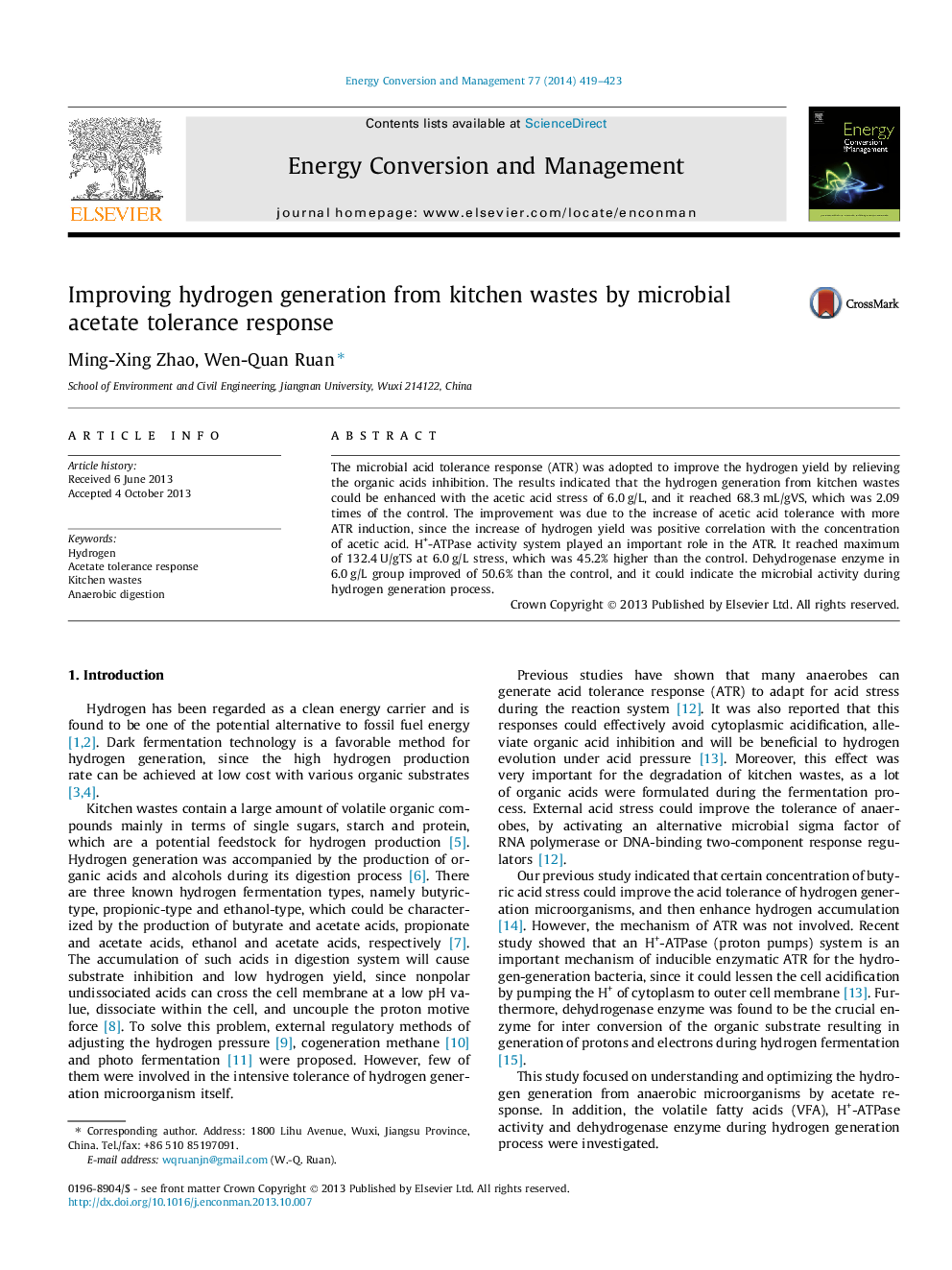| Article ID | Journal | Published Year | Pages | File Type |
|---|---|---|---|---|
| 7165812 | Energy Conversion and Management | 2014 | 5 Pages |
Abstract
The microbial acid tolerance response (ATR) was adopted to improve the hydrogen yield by relieving the organic acids inhibition. The results indicated that the hydrogen generation from kitchen wastes could be enhanced with the acetic acid stress of 6.0Â g/L, and it reached 68.3Â mL/gVS, which was 2.09 times of the control. The improvement was due to the increase of acetic acid tolerance with more ATR induction, since the increase of hydrogen yield was positive correlation with the concentration of acetic acid. H+-ATPase activity system played an important role in the ATR. It reached maximum of 132.4Â U/gTS at 6.0Â g/L stress, which was 45.2% higher than the control. Dehydrogenase enzyme in 6.0Â g/L group improved of 50.6% than the control, and it could indicate the microbial activity during hydrogen generation process.
Related Topics
Physical Sciences and Engineering
Energy
Energy (General)
Authors
Ming-Xing Zhao, Wen-Quan Ruan,
